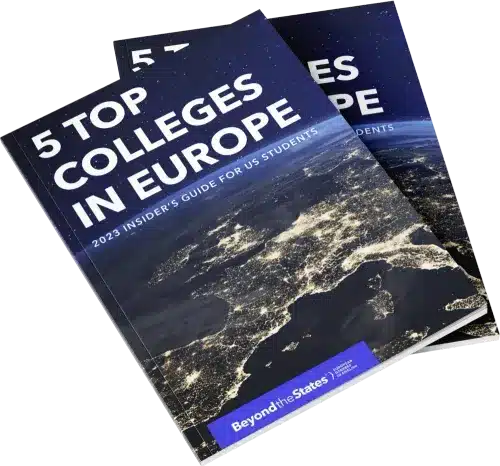A Sense of Optimism in a Time of Darkness
As you may know, I’m a huge Tim Leffel fan. He’s the author of such books as The World’s Cheapest Destinations and A Better Life for Half the Price. We were lucky to have sat in conversation with him on our podcast this past winter. I was just drawn into one of his recent blog posts on the topic of living abroad. His newsletter last week noted:
“The June reaction to all the bad news was interesting. More people bought my living abroad book last month than they have since launch month and newsletter subscribers went through the roof.”
At the same time, I noticed a Thrilist email last week with the subject line “How to Move to Canada, You Know, Just in Case”. In general, I’ve been struck by the rising number of posts across social media expressing desire to relocate outside of the US.
I don’t have to tell you, but the divisiveness in the country is continuing to escalate. Where I often see evidence of this in the comments of our BTS Facebook ad. The ad itself is not a political one at all. It has our map image of the number of English-taught Bachelor’s degree programs, and the average annual tuition, per country; it’s a rousing visual. But listen, the comments I have to delete on a too-regular basis are really disconcerting. People disagreeing is not the issue. I, myself, thrive in atmospheres of rigorous debate; our dinner table is such a place (much to Tom’s chagrin). But it’s the hostility and personal attacks that accompany these comments online that I find increasingly troubling. It feels like there isn’t space for real discourse– where people are able and willing to lean about an alternate point of view.
As you may know, my own family lived abroad for two years during a particularly divisive time in the US, and I can tell you here that relocating abroad is not the panacea we thought it might be. Regardless of where we live, the issues in our home country affect us in some way or another. However, the learning and growth that often accompanies a move abroad were tremendous, and well worth the experience. You can check out more of that in a past blog I wrote when we decided to return to the US.
Given the amount of growth I had as a middle aged woman, I feel optimistic about our future when I think about the impact the experience of living abroad has on the students who are pursuing their education outside of their home country. This is the generation that will lead our country at some point in the future. Having this opportunity at such a formative age to step away, to experience a whole other country and culture, and engage in regular discourse with a truly diverse, international community of students, may be an antidote to the societal extremes we currently find ourselves in in the US.
These students gain a perspective on how different parts of the world handle various matters be it healthcare, educational costs, gun control, refugees, or reproductive rights. They are benefiting from lower tuition, but their EU friends are paying tremendously less (if anything) and may even get a government stipend while they study. I’ve told the story before about how my son broke his wrist and had to have surgery while living in the Hague. Our out of pocket expense for the surgery was $0-and his student health plan that covered it was only about $500 a year!
FREE INSIDER’S GUIDE

Top 5 English-Taught Colleges in Europe
Kickstart you education abroad with a powerful degree taught entirely in English, all without taking on any student loans!
Students also glean from the viewpoints of their friends and classmates, who are from all over the world. My own son, Sam, who is in school in Prague, attends a monthly university event called “Professors in the Pub” in which students and professors gather to engage on timely topics. This past February the topic was, of course, Ukraine. What can transpire in a venue like this-where students from Russia, Ukraine, and US and many other countries share their perspectives- is that students can avoid buying into the your-corner, my-corner mentality we’re growing detrimentally accustomed to in the US.
Of course, some of the growth comes from less positive experiences. Student may bear witness to (or personally fall victim to) discrimination. They may have to deal with slow-moving bureaucracy and inefficient systems they don’t recognize. There is culture shock, and the discomfort that is inevitable when one is far from what’s familiar.
The point is this: studying and living abroad is so much more dynamic and beneficial than simply escaping fraught and volatile circumstances. There is adversity regardless of where you reside–there is no escaping this reality. But what can develop in an individual when they go abroad in this way, is an appreciation for different perspectives and policies. These conversations and experiences bring a refreshing shift in orientation. We’ve gone on and on about the soft skills that are inevitable outcomes of studying abroad long-term, and these skills, such as resilience, cooperation, empathy, self-direction, and diversity-awareness, are what’s sorely needed in any society. Yes, these qualities bode well for employability, and we’ve discussed this at length this past year, but greater than that they bode well for our younger citizens and the impact they will have on the world.
“I always felt a bit of an outsider in the US, so I was ecstatic about coming to study in Europe. It’s been all that I’ve hoped for and more. The university is incredibly international and everyone has a different perspective and is not afraid to discuss and debate. It was beyond refreshing to come to such an open-minded environment, especially what is going on in the US currently.”–Marieke, age 20, from Wilmington, DE, studying English Language and Culture at UG
“I think studying abroad is an amazing experience. I have met people from every continent (except Antarctica). I learned that there is more than just one perspective; how I think is developed by the environment I grew up in, but other people in different places think in different ways. I also adopted some of the Dutch ideology. For example, Dutch people generally have a good work-life balance. Students strive to pass, but not necessarily excel. I grew up thinking the goal was to be perfect, but I’ve since learned that finding a balance is a much happier way to live.”
–Kaitlin from Florida, Studying Psychology at Leiden University











